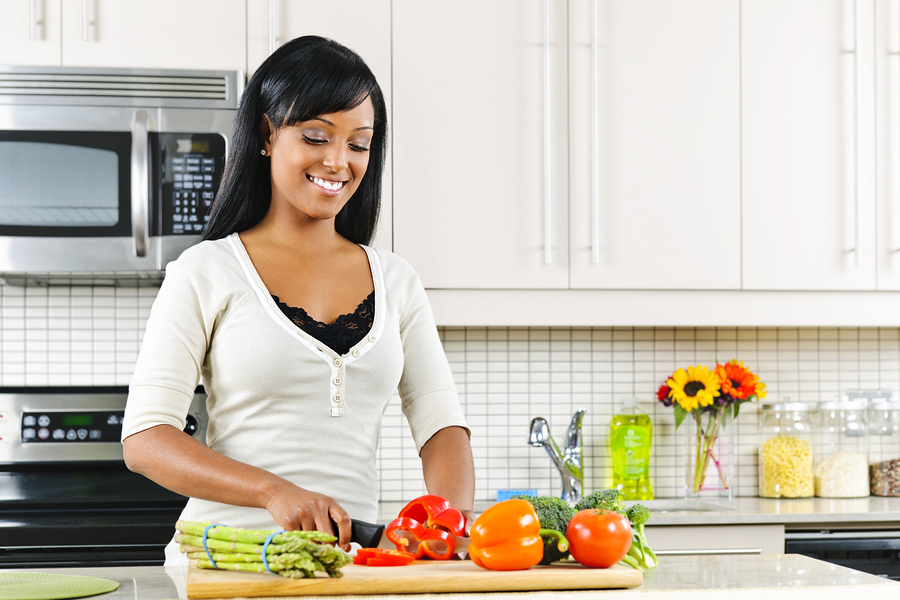
Because of changes to physical or cognitive abilities, some older adults are at risk of injuring themselves at home. One place where injuries commonly happen is in the kitchen. After all, it’s full of sharp cooking tools, a hot stove, and has a floor that is usually a smooth, slippery surface. The combination of these factors gives family caregivers good reason to worry.
However, when elderly care is involved, there is far less reason to worry. There are many things an elderly care provider can do to keep your aging relative safer in the kitchen, such as the things listed below.
Cutting Bagels and More
Did you know that slicing a bagel incorrectly occurs so often that medical professionals have given the resulting injuries their own term? When a person comes to the emergency room to have a cut treated that occurred while slicing a bagel, it’s called a BRI (bagel related injury). But it’s not just while cutting bagels that your older family member could be injured. It’s possible to slip or misjudge distance while cutting almost anything.
An elderly care provider can prevent knife cut injuries by taking over the slicing and chopping of foods while preparing meals with the older adult.
Cleaning Up Spills
When water or food spills on the floor, it can make it slippery, increasing the chances your aging relative will fall. Unfortunately, older adults with poor eyesight may not see spills. Or, the senior might have trouble bending down to clean them up.
An elderly care provider can watch for spills and promptly clean them up to prevent slipping.
Removing Clutter
Clutter in the kitchen can be dangerous because it may lead to tripping and other kinds of dangerous accidents. Countertops should be kept neat during cooking and pathways should always be kept clear.
An elderly care provider can assist with cleaning up the kitchen and keeping surfaces and the floor clean while cooking.
Preventing Cross Contamination
Cross contamination is a serious danger in the kitchen since it can lead to food poisoning. Reusing a cutting board or a utensil that has had raw meat, especially poultry, on it could introduce bacteria into other dishes, making anyone who eats them ill. Older adults who have cognitive issues may forget this important rule and inadvertently cause themselves or someone else to become ill.
An elderly care provider can either take over the cooking and prepare healthy meals and snacks for the senior, ensuring everything is done safely, or assist them to cook while making certain they don’t make any dangerous mistakes.
Sources: https://foodal.com/knowledge/how-to/kitchen-safety-avoid-cuts/
https://www.foodnetwork.com/how-to/articles/safety-in-the-kitchen-5-common-kitchen-accidents-and-how-to-avoid-them

